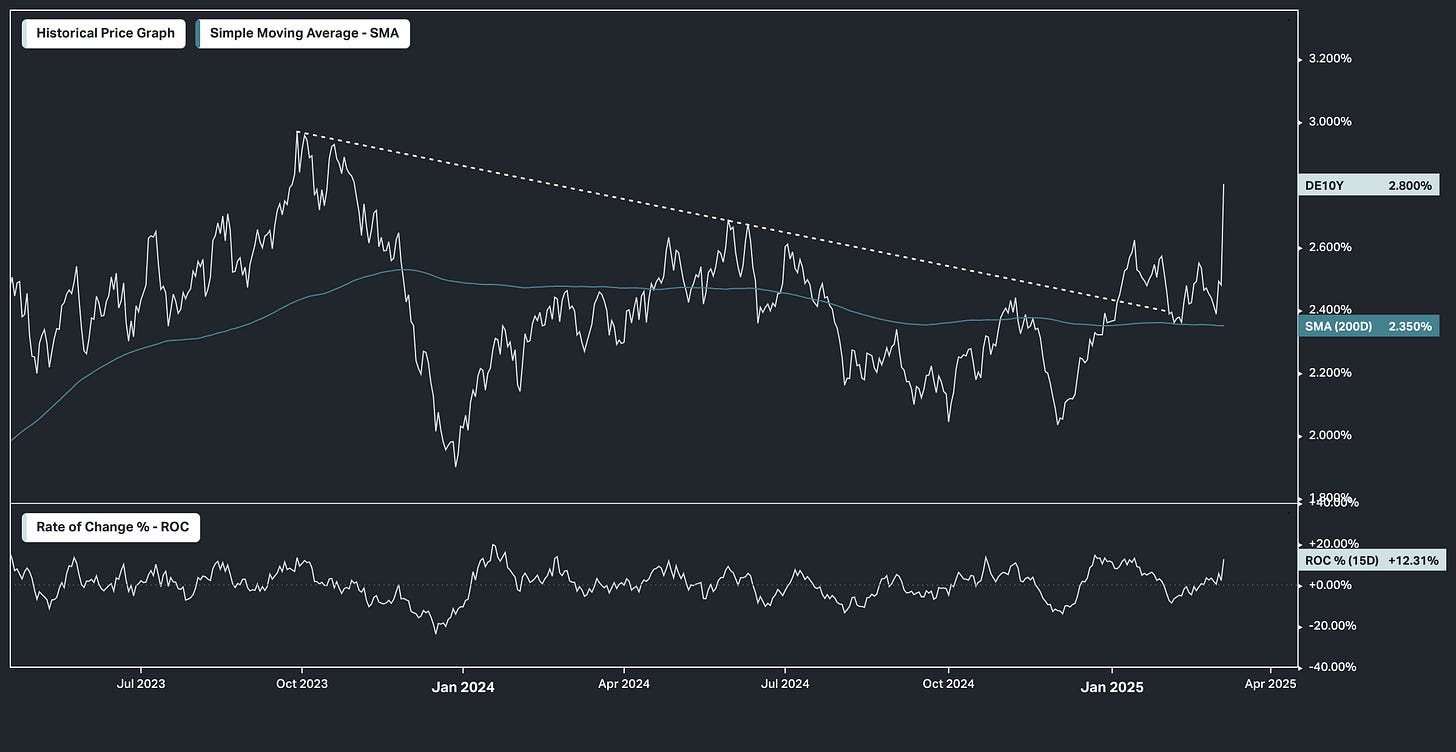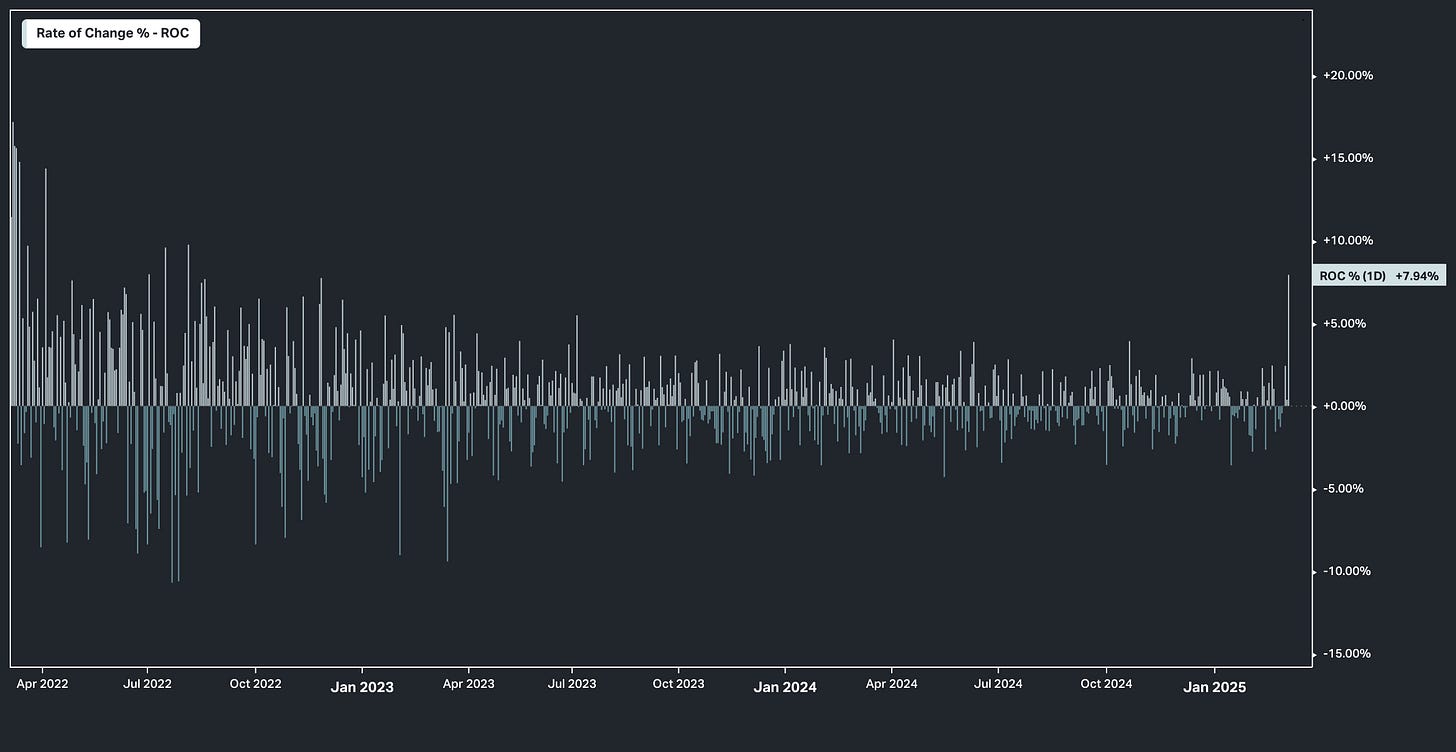Stocks in the US ended a two-day losing streak on Wednesday following President Trump’s announcement of a one-month exemption on auto tariffs for Mexico and Canada.
The S&P 500 and Nasdaq 100 surged by 1.2% and 1.4%, respectively, while the Dow Jones rallied 475 points.
Investors viewed the move as a sign that the administration could negotiate further tariff exemptions, driving a broad market rebound.
However, economic data presented mixed signals—an upbeat report on the services sector provided support, while weaker-than-expected private payroll growth raised concerns about slowing economic momentum.
Among the day's top gainers, Microsoft, Oracle, and Amazon advancing over 2%, though energy stocks lagged as oil prices dipped.
We talked yesterday about the fiscal spending spree in Europe.
It's bigger now.
In coordination with the European Commission's 800 billion euro "defense funding" plan, the German government has announced a 500 billion euro plan to contribute to the euro-wide defense funding AND to fund infrastructure.
So, this is a debt deluge in Europe, and it comes only a little more than a decade removed from a sovereign debt crisis in Europe.
As we discussed yesterday, what averted the debt crisis from becoming a cascade of debt defaults and ultimately a collapse of the monetary union (the euro), was intervention by the European Central Bank.
Back in the summer of 2012, Mario Draghi (ECB President) vowed to do "whatever it takes" to save the euro. He threatened to buy unlimited bonds of the weak eurozone countries, to ward off speculators and bring down the unsustainably high government borrowing rates (particularly of Italy and Spain).
Now we have the new leader of the German government invoking the same words when it comes to fiscal spending to defend the continent: "whatever it takes."
Is this reorientation in Europe around "whatever it takes" fiscal policy to:
catch up in AI,
build independence in defense capabilities, a greenlight to buy all things Europe?
Or is it a catalyst for a bond market shock, given the flaws exposed in the monetary union from the global financial crisis?
So far, the signals are mixed. The euro has rallied. German stocks are hanging around record highs.
But the yield on the German 30-year bund had the biggest spike since 1990. The spike in the German 10-year yield (the absolute basis point move) is only matched two other times in the past 13 years, one of which was in late 2011 when Greece was teetering on the edge of default.
Keep in mind, Germany is the most rigid fiscal conservative in the eurozone and the economic engine of Europe.
If relaxing deficit spending constraints for a country with 62% debt-to-GDP and a tiny budget deficit results in a 35-year-event-like bond market penalty, then what does that mean for the French bond market, a fiscally profligate country running a 6% budget deficit with debt well in excess of 100% of GDP?
As you can see in the chart above, the move in the French 10-year yield was on par with the Silicon Valley bank crisis period, and the days surrounding the European and UK bond market stress in 2022. And it's probably just getting started.
With that, this "whatever it takes" fiscal response in Europe looks less like a greenlight to buy Europe, and more like a European sovereign debt crisis (2.0) risk.










very true, it appears that Mme Lagarde will have to buy many, many bonds